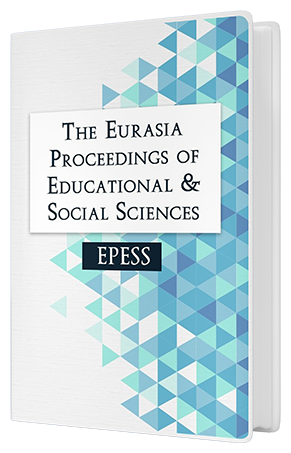Teaching the Unit 6 in Academic Program of Science and Technology on 8th Grade “Matter Cycles, Recycle and Energy Sources” and Their Effect on Students’ Environmental Consciousness (An Izmir City Case Study)
Keywords:
Environmental consciousness, Matter cycles, Recycle, Energy resources, Primary educationAbstract
In this study, the impact of the particular subject, which is covered as the sixth chapter in Science and Technology course of the eighth grade, “Matter Cycles, Recycle and Energy Resources” on students' environmental awareness was investigated. At the same time, the effectiveness of the studies which are practiced in the schools in line with the relevant achievements determined by the Ministry of National Education is examined. The survey method was used. The sample contains eight grade students (n=1600) from eighteen schools in Izmir. The data were collected by applying the "Environmental Consciousness Scale" developed by the researcher. Data analysis is made by using SPSS 15:00 Data Analysis Package Programme. According to the results, the environmental consciousness state of the students is turned out to be close to high. It is found that the students are successful in recycling and water saving, but they are dubious about how economical biofuels, acid rains, sun and wind energy are. It is found that female students' environmental consciousness is more than male students' and the awareness level has been different as their schools change. It is understood that the children of high-income level families have a higher level of environmental consciousness than the others. It is found that the education levels of the parents are significantly affecting the level of environmental awareness of the students. Finally, it has been concluded that when the students’ academic success level goes up, their environmental consciousness level goes up.Downloads
Published
Issue
Section
License
Copyright (c) 2018 The Eurasia Proceedings of Educational and Social Sciences

This work is licensed under a Creative Commons Attribution-NonCommercial-ShareAlike 4.0 International License.
The articles may be used for research, teaching, and private study purposes. Any substantial or systematic reproduction, redistribution, reselling, loan, sub-licensing, systematic supply, or distribution in any form to anyone is expressly forbidden. Authors alone are responsible for the contents of their articles. The journal owns the copyright of the articles. The publisher shall not be liable for any loss, actions, claims, proceedings, demand, or costs or damages whatsoever or howsoever caused arising directly or indirectly in connection with or arising out of the use of the research material. All authors are requested to disclose any actual or potential conflict of interest including any financial, personal or other relationships with other people or organizations regarding the submitted work.




